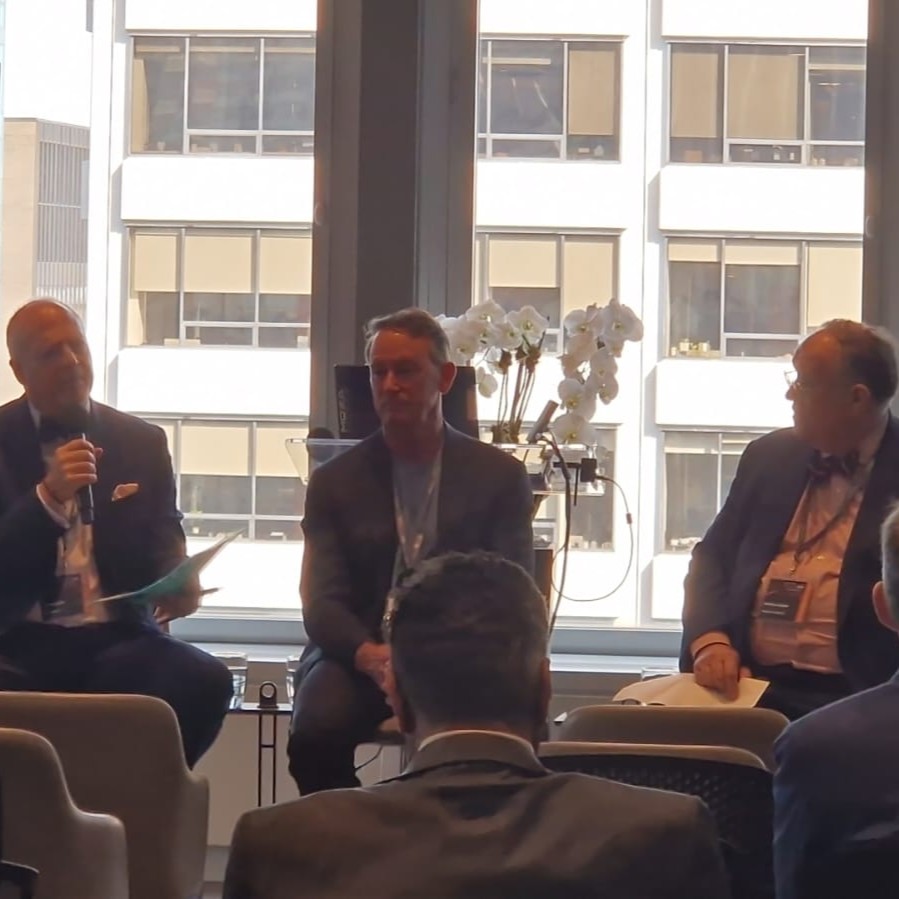Trust Estate
You’re Dead, Now What Happens To Your Collections?

In another example of the discussions that took place in the recent Family Wealth Report Family Office Investment Forum, this panel focused on fine art, inheritance, transfers and the tax implications.
On April 23, 2025, at the Family Wealth Report’s Family Office Investment Forum, there was a compelling panel discussion under the bracing headline: "You're Dead, Now What Happens to Your Prized Collections?"
The panel was moderated by Brian Hughes, president of Eton Advisors, and with Matthew Erskine, partner at Erskine & Erskine, and Tom Ruggie, Founder and CEO at Destiny Family Office. This event gathered experts to explore the complex world of estate planning and asset management, focusing on personal collections ranging from art and sports memorabilia to exotic cars and digital assets such as non-fungible tokens (NFTs).

Left to right: Hughes, Ruggie and Erskine
Opening insights
Hughes kicked off the session by highlighting the significant
appreciation in value that many collections have experienced over
the past decade. For instance, artwork and gold coins have seen
their values double or even quadruple since 2008, while the NFT
market witnessed an astronomical 21,000 per cent increase in
2024. Ruggie related how he purchased a baseball bat used by Babe
Ruth in 2008 for $16,000 that is now worth 20 times that amount
or more. These trends underscore the importance of strategic
planning for collectors and their heirs.
Understanding the need for planning
The discussion emphasized the critical need for proactive
planning. Hughes referred to a common saying by Erskine:
"Something is better than nothing," stressing that even a simple
one-page plan can make a significant difference. Ruggie shared
the story about recognizing the risk he was taking,
considering the unpredictability of life, asking: "What will
happen to my collection if I don’t come home tonight?" This
narrative served as a reminder of the urgency to plan for
collections.
Strategies for managing collections
The panelists laid out a roadmap for effective asset management,
including assessing holdings, maintaining collections, and
developing an exit strategy. They said it is important to view
oneself not just as a collector but as a steward, taking a
long-term perspective on preservation and succession.
The panelists also discussed liquidity and asset allocation, noting how emotionally attached collectors can sometimes act irrationally. The opaque nature of the market and high taxes on unplanned sales were highlighted as significant hurdles.
Valuation and documentation
Regular valuation and meticulous documentation are crucial. The
speakers recommended annual estimates of value by websites such
as Invaluable and more formal appraisals
periodically using reputable independent and unconflicted
specialists. Accurate record-keeping ensures that collections are
correctly valued and accounted for in estate planning.
Tax implications and risk management
The conversation also covered optimizing tax implications of
sales, inheritance and charitable gifting of collectibles
including tax deferral, estate freezes, planning for charitable
giving. They also pointed out the high cost of not ensuring
adequate liquidity. Ruggie related one situation where a
collector had loans collateralized by their collection with
interest rates as high as 30 per cent. The panelists advised on
risk management strategies, including insurance, security, and
proper storage, to protect the collection's integrity.
Difference between a collector and a steward
The session delved into the difference between a collector and a
steward. A collector focuses on acquisition and personal
enjoyment, while a steward considers broader responsibilities
such as cultural preservation and public benefit. Effective
succession planning involves both collecting and stewardship.
Exit strategies and multi-generational wealth
transfer
Panelists explored various exit strategies, including holding or
divesting assets, and considered the implications for heirs who
may lack interest or knowledge about the collections. They
stressed the importance of establishing good governance,
educational resources, and innovative approaches to
multi-generational wealth transfer.
Final takeaways
As the session concluded, the panelists urged attendees to act.
Whether it involves discussing plans with advisors or family
members, the key message was clear: "Do something." This
proactive approach ensures that collections are not only
preserved but also serve as a meaningful legacy for future
generations.
Engagement and follow-up
To facilitate ongoing dialogue, attendees were encouraged to
write down their questions for follow-up discussions. This
interactive approach ensures that every query is addressed,
helping families and collectors manage the complexities of estate
planning with confidence. Additionally, they provided QR codes to
Ruggie’s Collection Scorecard and to Erskine’s checklists and
case studies.
By embracing these insights from the Family Wealth Report panel discussion, collectors can manage their prized possessions more effectively, ensuring that their legacy endures well beyond their lifetime.